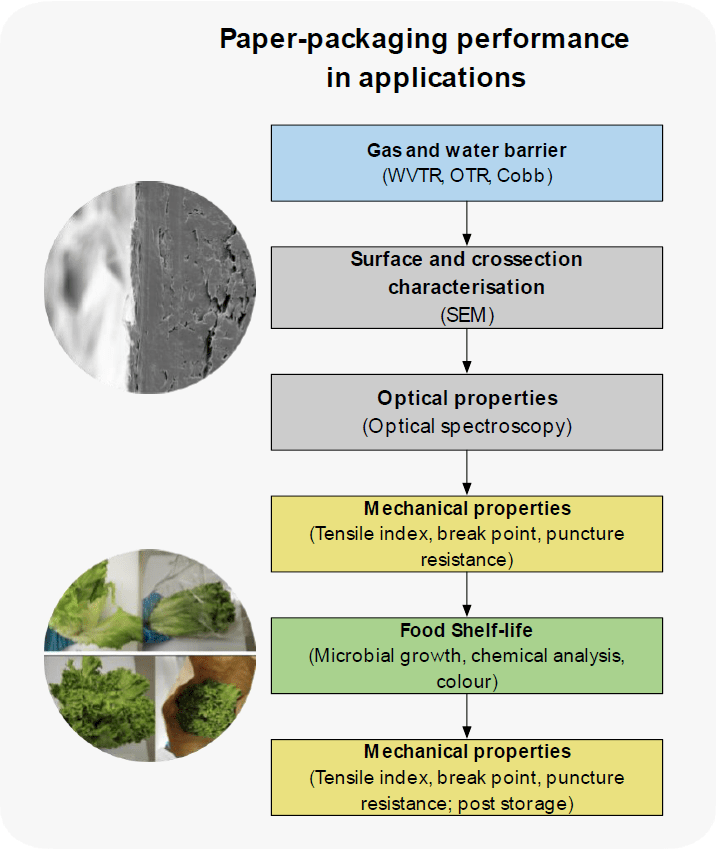Food packaging must be tailored to the needs of each individual product. The choice of packaging materials is challenging due to the variety of products and packaging materials available. However, in recent years the demand for sustainable packaging materials, such as paper-based packaging, has been increasing due to the environmental awareness of consumers and the growing regulatory pressure faced by plastic materials.
Using suitable coating technologies, materials such as paper can present water, oxygen and oil barriers representing suitable alternatives to plastic in specific applications. However, the interaction between the packaging material and the food, under unfavourable conditions, could cause changes in the composition and quality of the food or alterations to the physical properties of the packaging material itself.
ESNA offers functional verification programmes based on strict quality controls appropriate to each case to ensure the shelf life, quality, and safety of the food during transport and storage. The cover image shows one example of a characterisation workflow to assess the impact of paper-based packaging on the shelf life of fresh vegetables packaged in it and verify their marketability.
In the first step, the barrier and mechanical properties of the material are evaluated according to the specific requirements of the product to be packaged and its marketing form. The impact on the quality and shelf life of the food is evaluated by chemical, physical and microbiological analyses. Finally, the packaging material is again subjected to physical characterisation to determine how it has withstood the packaging and storage process. ESNA also can complement the functional verification tests in applications with tailor-made solutions for environmental impact assessment and safety and regulatory compliance.


